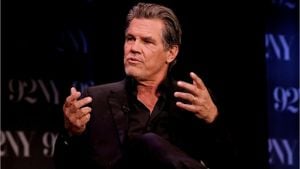The 4B movement, originating from South Korea, has emerged as a powerful feminist force gaining traction across the globe. With its roots deeply embedded in the fight against patriarchy, the movement advocates for women's autonomy, challenging societal norms around relationships and motherhood.
The term "4B" refers to four principles, all starting with the prefix "bi" (meaning "no") in Korean. These principles are:
- Bishekseu: “not having sex”
- Bichulsan: “not getting pregnant”
- Biyeonae: “not dating”
- Bihon: “not to marry”
This straightforward message encapsulates the choices many women are making to reclaim their agency and reject traditional expectations.
The inception of the 4B movement can be traced back to the socio-political climate of South Korea, characterized by rampant sexism and gender inequality. A key moment was the 2016 murder of a woman near the Gangnam subway station, which sparked widespread outrage and forced women to confront the persistent violence against them. This event laid the groundwork for the feminist groundswell, which saw the rise of numerous protests and initiatives aimed at disrupting deeply ingrained patriarchal systems.
Fast forward to the mid-2010s, the 4B movement took shape amid the global #MeToo movement, providing South Korean women with the space to voice their frustration and condemnation of systemic misogyny. It flourished primarily online, particularly on platforms like TikTok, where feminist discussions intersected with personal narratives, forming communities across demographic lines.
Now, with the political unrest evident worldwide, the 4B movement has resurfaced, especially among American women who feel disillusioned by the current political climate following Donald Trump's re-election. Many see adopting the principles of 4B as a way of resistance—a way to express dissatisfaction with conservative policies threatening women and minorities.
American TikTok users are engaging with the 4B philosophy, posting content embracing its tenets as they grapple with feelings of disenfranchisement under an administration perceived as hostile to women's rights. For example, one user remarked, “Good luck getting laid, especially in Florida! Because me and my girlies are participating in the 4B movement.” This reflects the anger and defiance prevalent among young women seeking solace and support through social media platforms.
Despite the movement’s growing visibility, it faces criticism. Some detractors argue it promotes separatism and could alienate men who might otherwise be allies. Others worry it may perpetuate tensions between genders, where the original intent of fostering empowerment could devolve and compromise the larger feminist cause.
Critics like Kim Si-won, who recently graduated from college, express concern about whether labeling the choices of women under the 4B banner serves to deepen existing divides. “I wish women and men could live together without animosity,” she shared, indicating the need for collective efforts to promote gender equality rather than fostering divisions.
Within South Korea, the backlash against 4B has included accusations of reverse sexism, often leading men to rally against its tenets and argue against perceived biases favoring women. Notably, significant conservative political movements have capitalized on this sentiment to galvanize support among young men, mirroring trends seen during Trump’s rise to prominence. Political figures have exploited this divide as they navigate public sentiment and policy-making, reinforcing patriarchal norms rather than dismantling them.
It’s important to note, too, how the 4B message intersects with issues like reproductive rights and workplace discrimination, persisting concerns across multiple societies. The current legislative environment surrounding these matters has catalyzed women to take stock of their rights and the extent to which they feel protected under law.
While the 4B movement initially gained traction mainly within South Korea, its principles offer applicable echoes for feminist movements across the globe, particularly in Western nations grappling with increasingly conservative policies. American women are not merely mimicking South Korea’s battle against patriarchy; they are adapting these principles to articulate their challenges and frustrations within their political landscapes.
Social media has played an integral role, with hashtags like #4B and #4Bmovement trending on platforms like TikTok and Instagram, creating vibrant discussions around these topics. The decentralized nature of social media allows for the organic growth of feminist communities capable of sharing experiences and strategies for collective empowerment.
It remains to be seen whether the 4B movement will gain significant ground and influence within the U.S. or remain a niche ideology. What is clear is the movement’s resonance among young women who feel disillusioned and overlooked by traditional societal structures. This shared sentiment could potentially lead to sustained discussions about gender roles and the rights of women—not just across social media but within broader cultural conversations.
Despite facing skepticism, the emergence of the 4B movement offers women around the globe another avenue for advocacy and empowerment. With its roots deeply embedded within experiences of personal choices and communal empowerment, it has ignited discussions about relationships, behavioral expectations, and autonomy—all matters of growing importance as society continues to evolve.
While challenges remain both structurally and culturally, the 4B phenomenon marks a significant moment within the women's rights movement. For many, it's not just about saying “no” to the traditional expectations placed upon women; it's about courageously asserting their choices and redefining their identities, ambitions, and futures, free from the constraints of patriarchal expectations.
With upcoming elections and political changes on the horizon, the climate suggests the relevance of such movements may grow, potentially igniting new dialogue about women's place within society and the rights they deserve. Just like the women before them, today’s advocates for 4B are determined to craft their futures on their own terms, advocating for gender equity and dismantling the systems which have restricted them.



